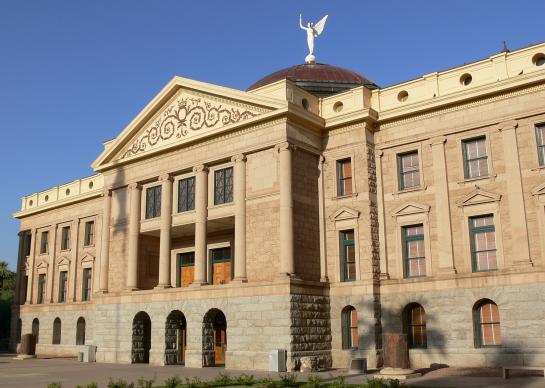AZ Legislative Update 03-25-2022

Lawmakers rarely welcome court rulings that say they violated the Arizona Constitution. This week, however, a Yavapai County Superior Court’s ruling against legislative changes to precinct committee elections brought House and Senate Republicans a reason to celebrate. The court ruling overturned a controversial provision enacted when the legislature rushed through a change to the signature-gathering process for political candidates. The unintended change to precinct elections infuriated Republican party leaders and sparked conflict between political parties at the Capitol when Democrats refused to immediately overturn that part of the new law. By ruling that the new law violated the Constitution’s limits on special legislation, the court removed the provision, reset the precinct elections, and eliminated the need for the legislature to act on the issue.
There were plenty of other policies to debate at the Capitol this week. Policy committees stretched for hours as lawmakers rushed to consider bills before today’s deadline for committee hearings.
House committees voted to strengthen penalties against assaults on health care workers, study the use and supply of hydrogen, ban COVID-19 vaccine requirements for students, ask voters to raise taxes for fire districts, and prevent cities from taxing residential rental properties.
In the Senate, committees voted to create a health care workforce grant program, require surveillance for ballot drop boxes, increase stipends for kinship foster care, allow fireworks for Diwali and other religious holidays, and require schools to have a daily moment of silence and teach about gun safety and political ideologies.
The Senate Government Committee approved a controversial bill that would end most early voting and require ballots to be counted by hand rather than by machine. The bill is unlikely to pass the legislature, but the Committee provided a forum for some Republican lawmakers to express their opposition to early voting.
Debates got heated during House and Senate floor sessions, as well. In the House, Republicans united to override Democratic opposition to bills that limit transgender surgeries and school sports participation, extend property tax benefits for businesses, and ban abortion after 15 weeks.
Senate Republicans approved bills to increase citizenship verification for voters, outline what can be considered in personal injury claims for inmates’ workplace injuries, and prohibit local governments from closing businesses during an emergency.
The Senate failed to pass a bill that requires public bodies to provide enough seating for meeting attendees.
While controversial bills dominated the debates, most bills passed with bipartisan support. Legislators unanimously approved bills to prohibit registered sex offenders from working as taxi drivers, expand access to organ transplants for individuals with disabilities, prohibit HOAs from banning artificial turf, and create standard requirements for the design of new specialty license plates.
Governor Enacts New Laws
So far this year, Governor Ducey has enacted 61 new laws and has not vetoed any.
What’s Next?
Only the Appropriations Committees are scheduled to meet next week, and they will consider almost 60 bills. Lawmakers will also participate in floor sessions as they advance bills closer to the Governor’s desk.
In the Elections
Senator Kelly Townsend (R-Apache Junction) issued another subpoena to Maricopa County, and the County is not happy about it. The Senate’s ballot review wrapped up with a report that said there was no evidence of problems with Maricopa County election equipment in the 2020 election; Senate President Karen Fann (R-Prescott) hopes it will restore faith in elections. A Maricopa County Superior Court judge said Cyber Ninjas CEO and his wife could be liable for court-ordered fines, even if the company goes away. The race to be the next Maricopa County Attorney puts focus on the state’s online signature collection system. Arizonans like to vote by mail – even the ones trying to end early voting. There are a lot of campaign ads in Arizona. Many of the proposed changes to election laws will be back next year.
In the Courts
A federal judge agreed with part of a lawsuit led by Arizona, partially blocking federal immigration priorities. An Arizona Supreme Court task force published recommendations for countering disinformation.
In the News
Cochise County residents are going directly to voters to pursue oversight of rural groundwater. Arizona’s public health challenges preceded the pandemic. Arizona is the first state to use Apple Wallet for official ID. Water and energy officials are closely watching Lake Powell. Governor Ducey appointed new members to education oversight boards. People moved to Phoenix during the pandemic. Some Arizonans will have to verify their eligibility for AHCCCS when the federal COVID-19 emergency declaration ends.
On the Bright Side…
The toads crossed the road.